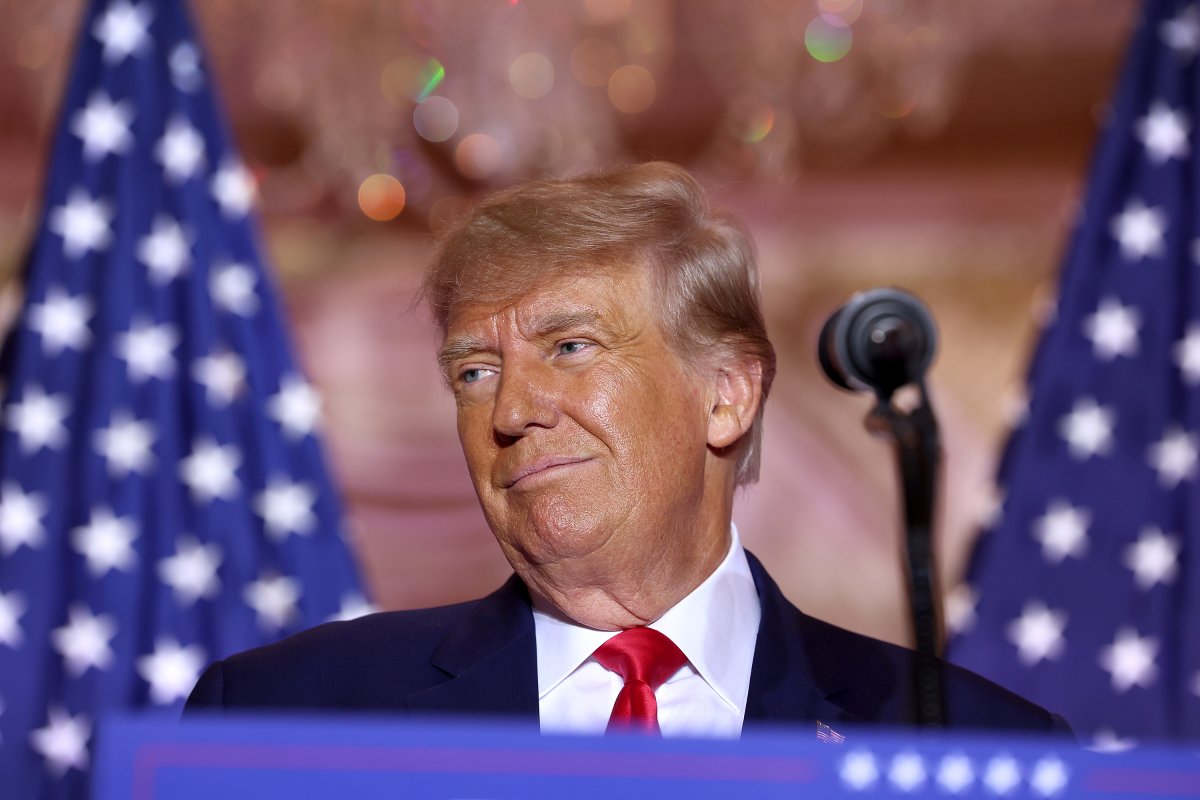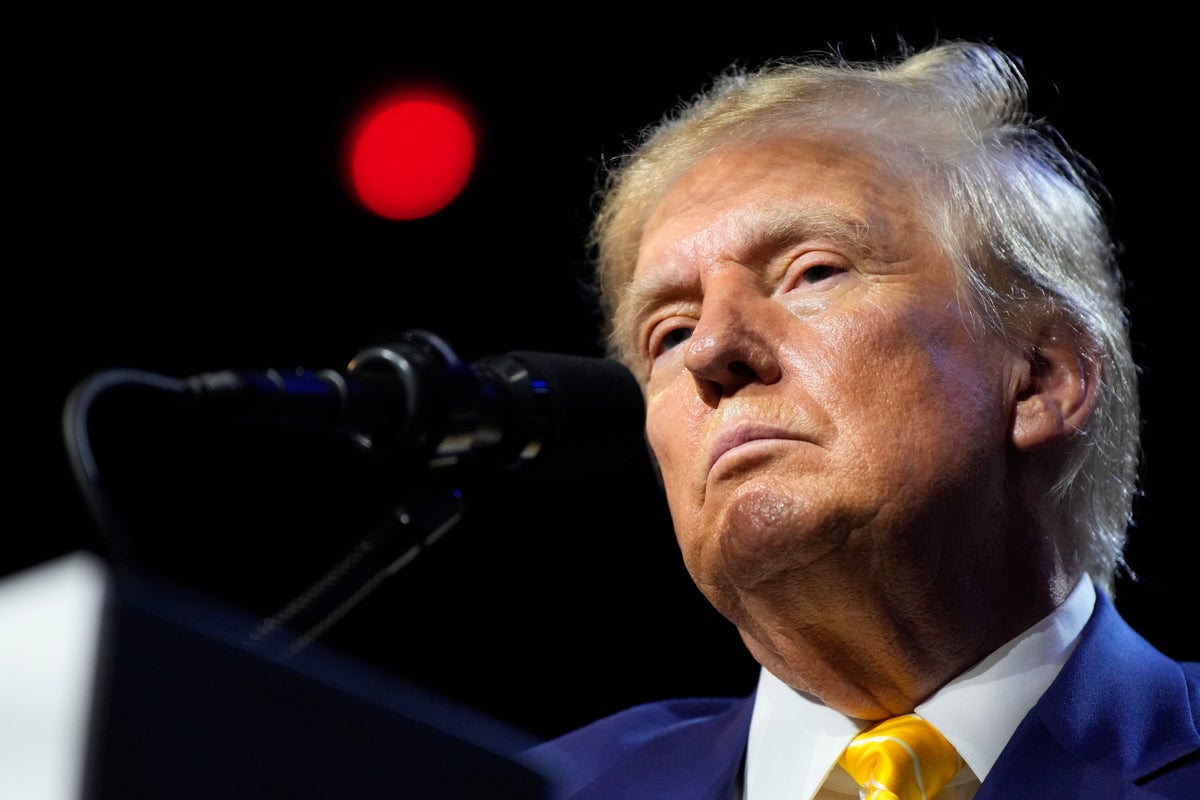Bitcoin Price Surge: Trump's Actions And Fed Policy Impact

Table of Contents
Trump's Economic Policies and Bitcoin's Price
Donald Trump's presidency was marked by significant economic policy shifts that inadvertently influenced Bitcoin's price. Understanding these connections is crucial for comprehending Bitcoin's price movements and potential future trends.
Impact of Trade Wars
Trump's initiation of trade wars created considerable uncertainty in global markets. This uncertainty shook investor confidence in traditional assets like stocks and bonds. Many investors, seeking refuge from this instability, turned to alternative assets perceived as less vulnerable to geopolitical risks. Bitcoin, with its decentralized nature and relative independence from traditional financial systems, emerged as an attractive option.
- Increased volatility in stock markets: Trade wars introduced significant uncertainty, leading to increased volatility and decreased returns in traditional investment vehicles.
- Search for alternative, decentralized assets: Investors sought diversification and protection from potential losses in traditional markets, driving interest in decentralized assets like Bitcoin.
- Bitcoin's position as a safe haven asset: The perception of Bitcoin as a safe haven asset, less susceptible to government intervention and trade disputes, contributed to increased demand.
Fiscal Stimulus and Inflationary Pressures
Trump's administration implemented substantial fiscal stimulus packages, leading to an increase in the money supply. This injection of capital into the economy fueled concerns about potential inflationary pressures. Investors often seek hedges against inflation, and Bitcoin, with its limited supply of 21 million coins, has been viewed by some as a potential store of value that could protect against currency devaluation.
- Increased money supply: Government spending and tax cuts increased the overall money supply, potentially leading to inflation.
- Potential devaluation of fiat currencies: Increased money supply can erode the purchasing power of fiat currencies, making alternative assets like Bitcoin more attractive.
- Bitcoin's limited supply as a counterpoint: Bitcoin's fixed supply acts as a constraint, potentially mitigating the effects of inflation impacting fiat currencies.
Regulatory Uncertainty
Trump's administration's approach to cryptocurrency regulation, or rather the lack thereof, created an environment of regulatory uncertainty. While this uncertainty could hinder adoption in some ways, it also fueled speculation and price volatility. The ambiguity surrounding regulations often leads to increased trading activity and price swings.
- Unclear regulatory landscape: The absence of clear regulatory frameworks created uncertainty and volatility in the cryptocurrency market.
- Potential for both positive and negative impacts: Regulatory uncertainty can both attract speculative investment and deter institutional participation.
- Increased speculation and price volatility: The lack of clear rules led to increased speculation and amplified price swings in the Bitcoin market.
Federal Reserve Policy and Bitcoin's Price
The Federal Reserve's monetary policies also played a significant role in influencing Bitcoin's price. The Fed's actions directly impact the value of the US dollar and investor behavior in global markets.
Interest Rate Hikes and Bitcoin's Appeal
Increased interest rates by the Federal Reserve can make traditional investments, like bonds, more attractive. However, when interest rates are low, investors might seek higher-yielding assets, potentially turning to cryptocurrencies like Bitcoin for potentially higher returns, albeit with increased risk.
- Reduced returns on traditional investments: Higher interest rates can reduce the relative returns on traditional, low-risk investments.
- Search for higher yield investments: Investors seeking higher returns might turn to riskier assets such as Bitcoin.
- Bitcoin's potential for significant returns: The potential for substantial gains in Bitcoin attracts investors despite its inherent volatility.
Quantitative Easing and Bitcoin's Value
Quantitative easing (QE) policies, implemented by the Federal Reserve to stimulate the economy, involve injecting large sums of money into the financial system. This increase in the money supply can lead to a devaluation of fiat currencies. Bitcoin, with its finite supply, could benefit from this devaluation, gaining value relative to weakened fiat currencies.
- Increased money supply through QE: QE policies increase the overall money supply, potentially leading to inflation and currency devaluation.
- Devaluation of fiat currency: The increased money supply can diminish the purchasing power of fiat currencies.
- Bitcoin's value as a store of value: In this context, Bitcoin is seen by some as a hedge against currency devaluation.
Market Sentiment and Fed Actions
Market sentiment regarding Federal Reserve actions significantly influences Bitcoin's price. Anticipation of future Fed moves, whether interest rate hikes or QE programs, affects Bitcoin trading and investment decisions. Unexpected policy changes can trigger rapid price movements in the Bitcoin market.
- Market speculation based on Fed announcements: Announcements and expectations regarding Fed policy significantly influence market sentiment and Bitcoin trading activity.
- Impact of unexpected policy changes on Bitcoin price: Unexpected policy shifts can cause significant and sudden price fluctuations in the Bitcoin market.
- Relationship between Bitcoin volatility and Fed policy announcements: There is a clear correlation between the announcements of Federal Reserve policies and increased volatility in the Bitcoin market.
Conclusion
This analysis demonstrates a clear correlation between both Donald Trump's economic policies and Federal Reserve monetary policy, and the significant price surges observed in Bitcoin. The uncertainties surrounding trade wars, fiscal stimulus, regulatory environments, and interest rate fluctuations have all contributed to Bitcoin's appeal as a potential hedge against economic instability and inflation. Understanding these complex interactions is crucial for navigating the volatile world of cryptocurrency investment. To stay informed about the future of Bitcoin and its price movements, continue researching the impact of global economic policies and keep an eye on the interplay between Bitcoin and traditional financial markets. Learn more about how Bitcoin price surges are affected by these factors to make informed investment decisions.

Featured Posts
-
 Is Sk Hynix The New Dram Leader Ais Role In The Market Shift
Apr 24, 2025
Is Sk Hynix The New Dram Leader Ais Role In The Market Shift
Apr 24, 2025 -
 Hisd Mariachis Journey To Uil State A Viral Video Success Story
Apr 24, 2025
Hisd Mariachis Journey To Uil State A Viral Video Success Story
Apr 24, 2025 -
 End Of Ryujinx Nintendo Contact Forces Emulator Shutdown
Apr 24, 2025
End Of Ryujinx Nintendo Contact Forces Emulator Shutdown
Apr 24, 2025 -
 Teslas Q1 Profit Decline Impact Of Musks Trump Ties
Apr 24, 2025
Teslas Q1 Profit Decline Impact Of Musks Trump Ties
Apr 24, 2025 -
 Steffy And Liams Heart To Heart Finns Warning The Bold And The Beautiful Spoilers For Thursday February 20th
Apr 24, 2025
Steffy And Liams Heart To Heart Finns Warning The Bold And The Beautiful Spoilers For Thursday February 20th
Apr 24, 2025
